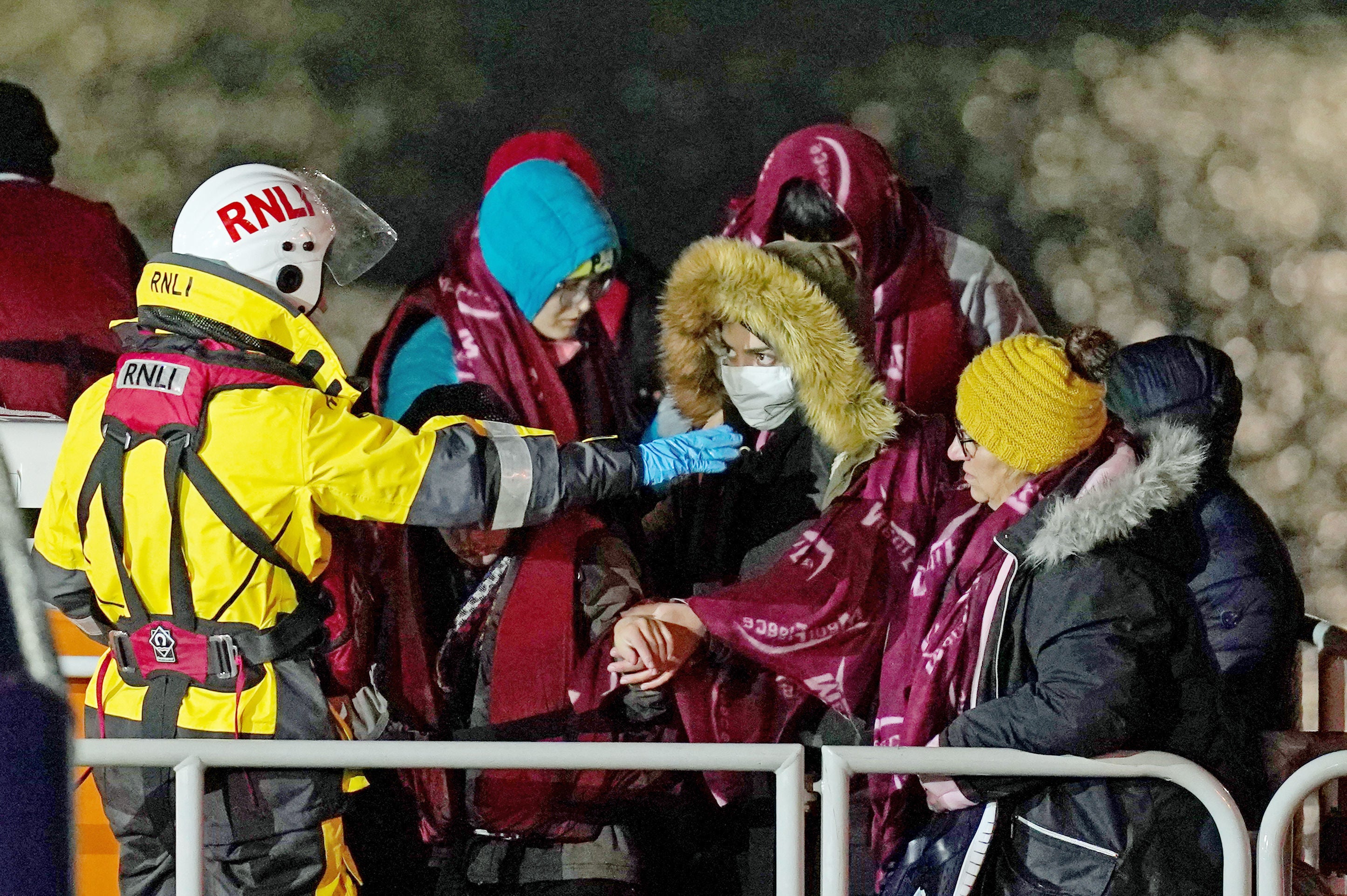
Media publications and those referring to the people who tragically died while attempting to enter the UK via the English Channel yesterday have been urged to refer to the victims as “people” not “migrants”.
Yesterday, 27 people died by drowning after a small boat capsized in the Channel on the way to Britain, triggering debates about the UK’s strict immigration system and the role of people smugglers who facilitate the dangerous crossings.
Amid a plethora of reaction, with Boris Johnson and Emmanuel Macron pledging to renew efforts to prevent such tragedies, people have spoken out about the language used when talking about those involved in the tragedy, with people implying “migrants” is an offensive term.
Deputy leader of the Labour Party, Angela Rayner, said that “language matters”.
“The poor souls who died in the Channel deserve the dignity of being described as who they were,” she added.
Sign up to our new free Indy100 weekly newsletter
“Human beings. Men, women, children. Mothers, fathers, daughters, sons. They loved and were loved. In other words they were just like us. An unconscionable tragedy.”
Language matters.
— Angela Rayner (@AngelaRayner) November 24, 2021
The poor souls who died in the Channel deserve the dignity of being described as who they were. Human beings. Men, women, children. Mothers, fathers, daughters, sons. They loved and were loved. In other words they were just like us. An unconscionable tragedy.
While Channel 4’s Krishnan Guru-Murthy tweet reading: “Not migrants. People. That’s all” racked up over 56,000 likes at the time of writing, indicating mass support.
Not migrants. People. That’s all.
— Krishnan Guru-Murthy (@krishgm) November 24, 2021
Other people also took to social media to share similar views:
NOTE to Journos
— Clare Hepworth OBE (@Hepworthclare) November 24, 2021
Please stop referring to todays awful awful unspeakable events as "migrant deaths"
They are people- with whom we share - or should share - a basic common humanity..
Everyone ….can we call them people please……NOT #migrants !
— Slimothy Timothy (@slimtimcann) November 24, 2021
They were not #migrants they were human beings.
— Alabaster Codifyer.🌷 (@Hasselschmuck) November 24, 2021
Twitter is an absolute sewer tonight...
Headline should be five "people" rather than "migrants" - research shows that when the word migrant is used in headlines it can often be dehumanising as the term is often used as a pejorative by tabloids especially https://t.co/udshVbRDd3
— tobi thomas (@tobithomas_) November 24, 2021
OK I'm going to say this one more time. The people in boats are Asylum Seekers (NOT migrants). Asylum Seekers are LEGAL entrants into the UK, migrants may or may not be. But you can't KNOW until they are in the UK and have been checked. Until then they ARE LEGAL? Is that clear?
— Andy Davidson 🇬🇧🇪🇺🇫🇷Proud European do-gooder (@AndyDavidson14) November 25, 2021
27 migrants didn’t drown. 27 human beings did. Men, women, maybe even, heartbreakingly children. People like me, you. People who were loved, who loved others. I’m so sorry 💔 https://t.co/zgEyhzBJM6
— Anna Yearley Carreira (@AnnaYearley) November 24, 2021
The language used when referring to people in these situations has been debated extensively over the last few years. In 2015, news website al-Jazeera said it would no longer use the term migrant in its coverage, with an online editor for the network writing: “It has evolved from its dictionary definitions into a tool that dehumanises and distances, a blunt pejorative.”
Meanwhile, speaking to the BBC in the same year, Emma Briant, author of the book Bad News for Refugees, outlined the differences between the way people speak about migrants from the UK and from other countries. She said: “Very often when we talk about British people who migrate we tend to talk of them as expats or expatriates. They are not immigrants.”
Others still say the word is often used in tandem with the concept of illegality, while others say it indicates choice, despite many people being in unthinkable situations.
However, others disagree that migrant is in any way offensive. “It’s a proper description for anyone who has moved across a border,” Don Flynn from the Migrants Rights Network told the BBC.
A UN Refugee Agency (UNHCR) blog in 2015 added: “We say ‘refugees and migrants’ when referring to movements of people by sea or in other circumstances where we think both groups may be present – boat movements in Southeast Asia are another example.
“We say ‘refugees’ when we mean people fleeing war or persecution across an international border. And we say ‘migrants’ when we mean people moving for reasons not included in the legal definition of a refugee.
“We hope that others will give thought to doing the same. Choices about words do matter.”







